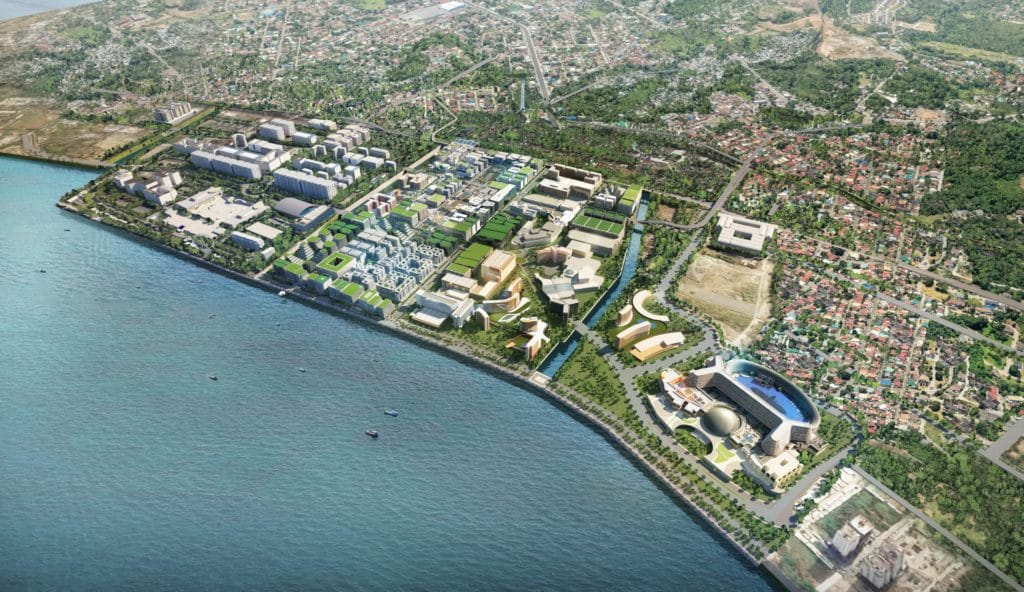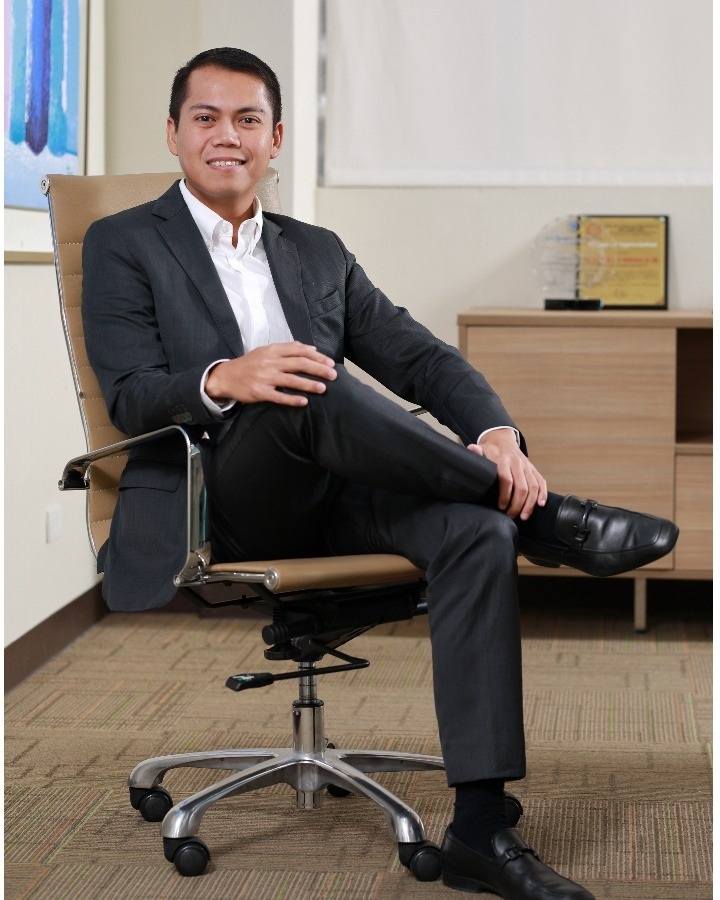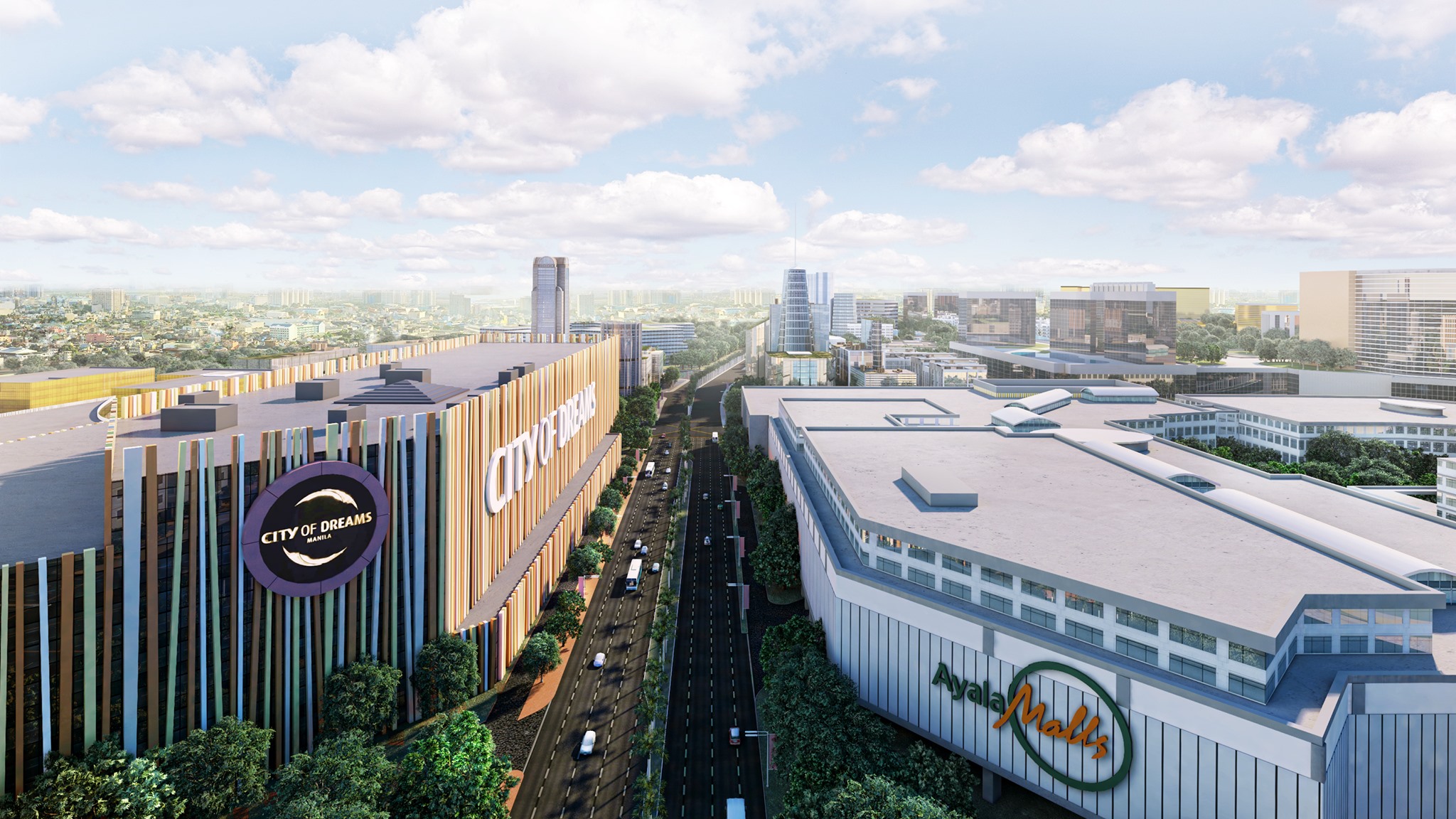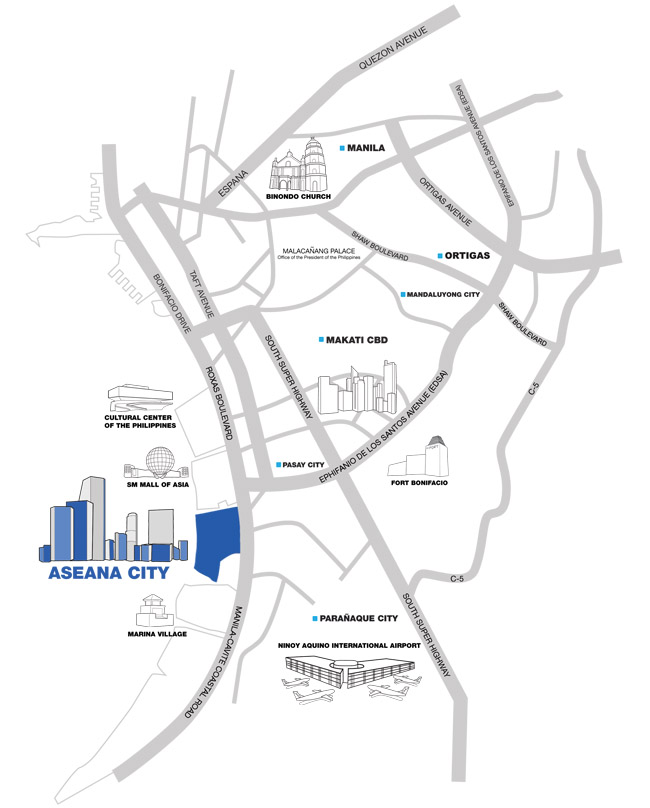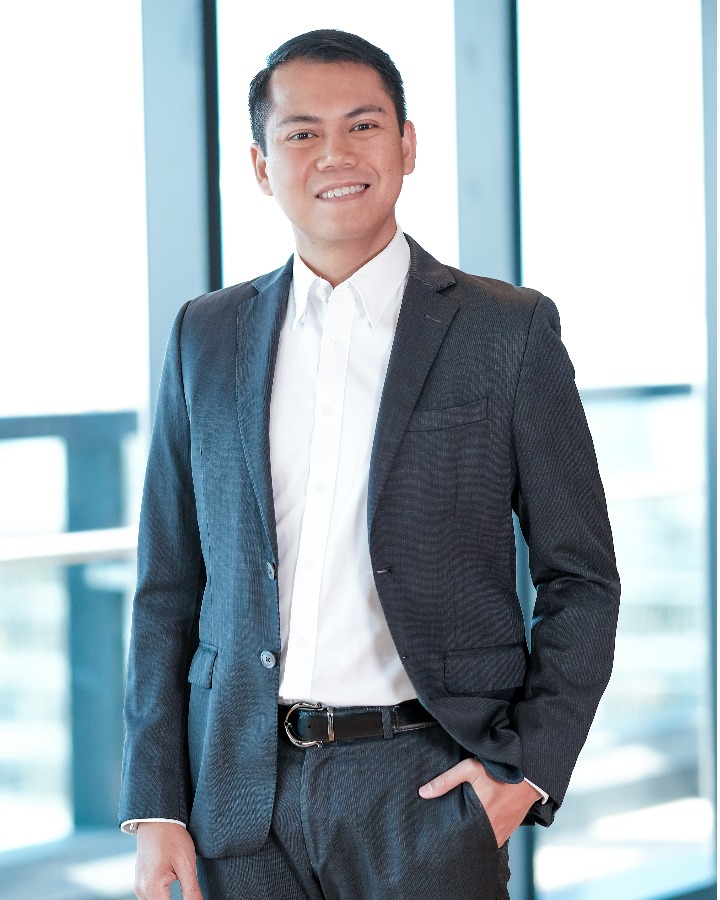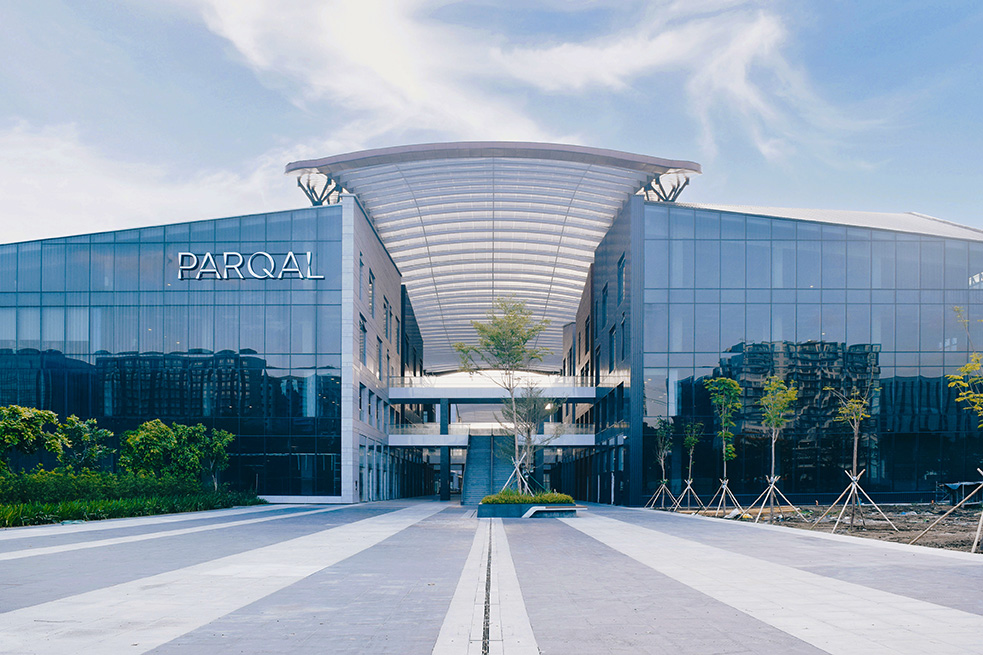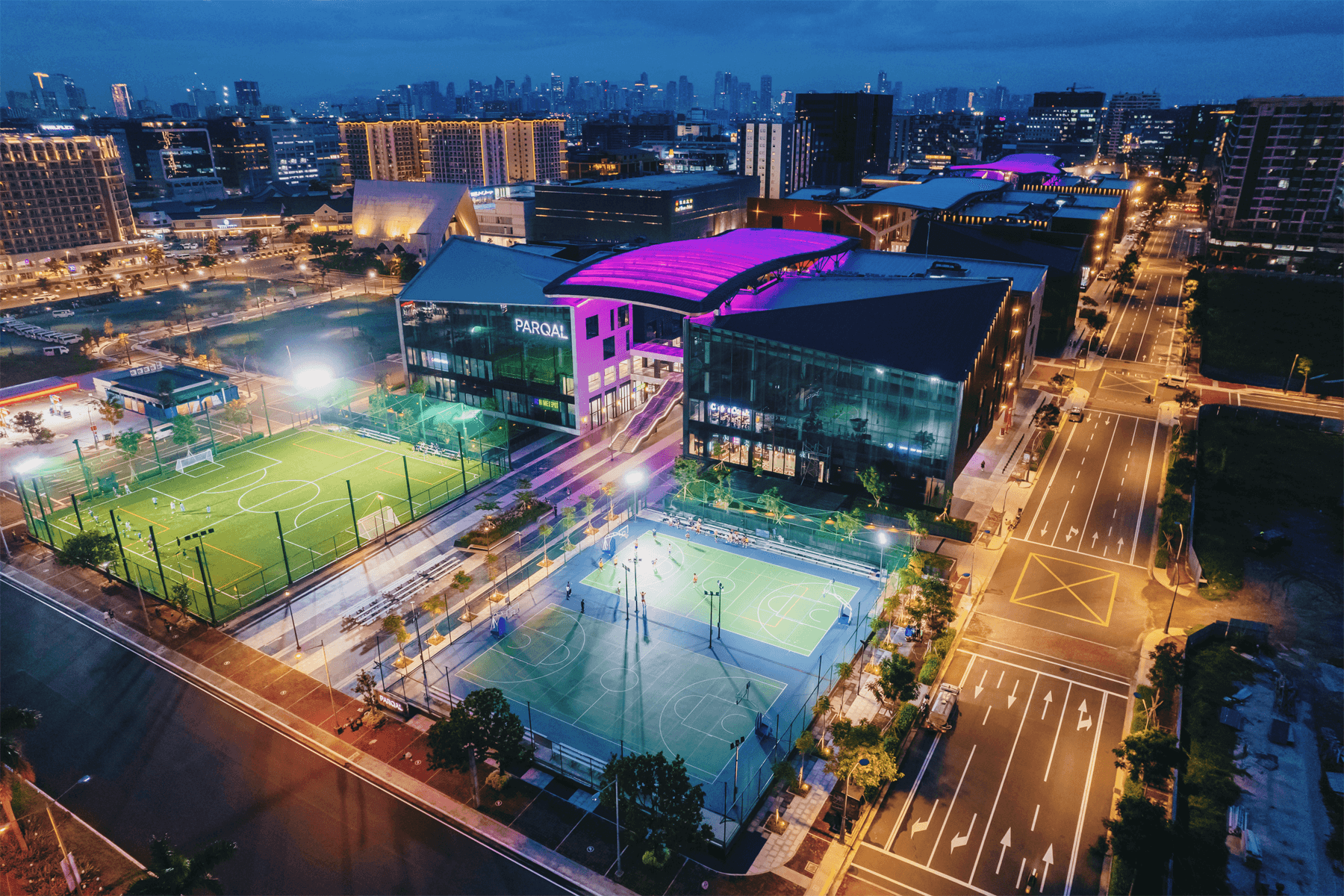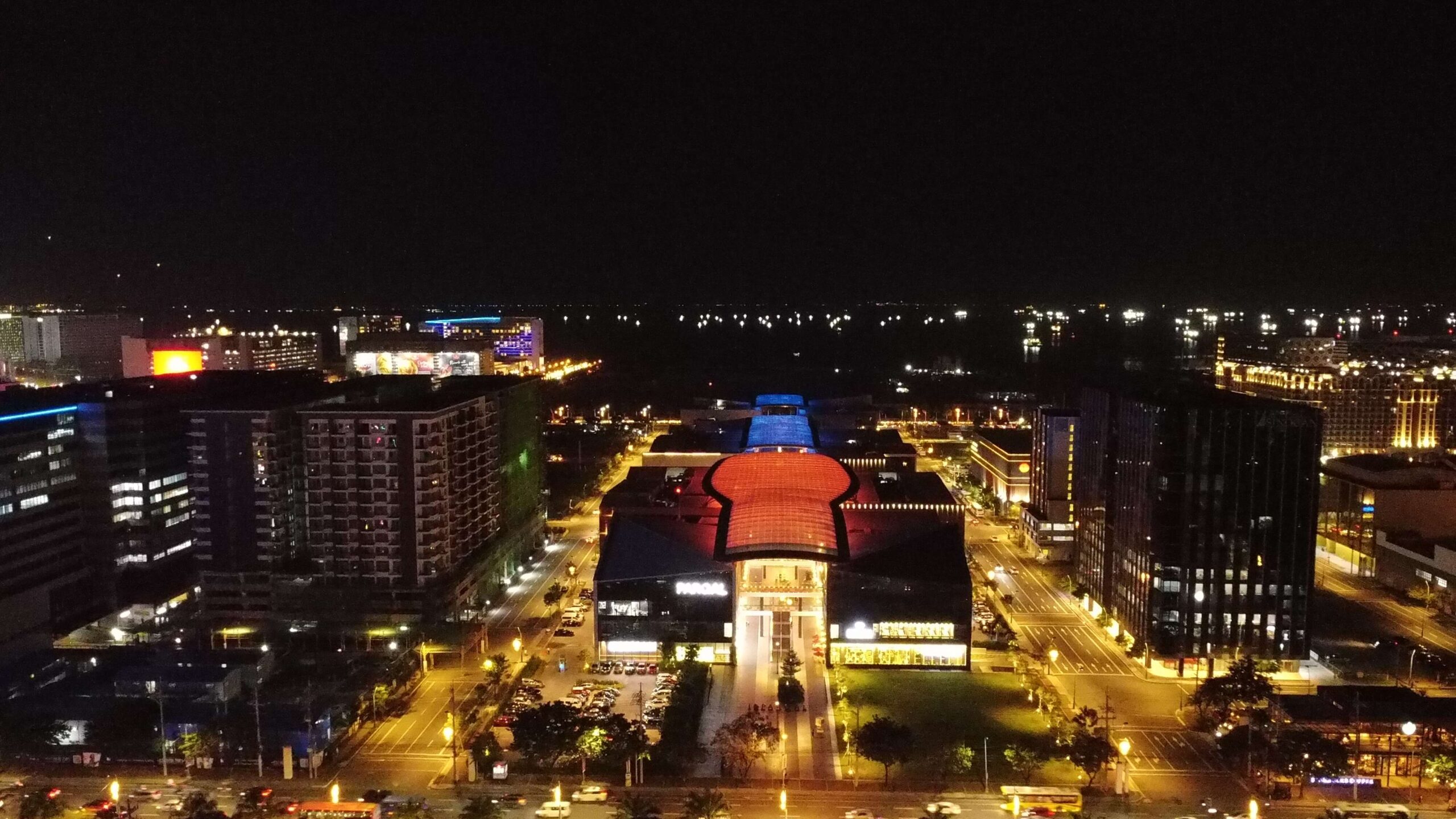The Wenceslaos of listed company DM Wenceslao & Associates Inc. (DMWAI) may be best known in business circles for construction and real estate, but not many know that many members of the family are actually doctors. Delfin Angelo Wenceslao, who is best known by his nickname Buds, says this is the reason why he initially entertained the idea of becoming a doctor himself when he was younger.
“I liked the lifelong learning aspect of being in the medical profession,” he tells Esquire Philippines. “But as fate would have it, I got into a business course and hearing my dad talk about his ongoing projects made it more interesting to me as time went by.”
Today the 41-year-old is a director and the CEO of DMWAI, handling the reins of a company founded by his grandfather in 1965. The challenges of leading an organization are never easy, but one can only imagine the pressures of steering a half-a-century year-old company, ensuring its health and profitability not just for today but for the years ahead.
A short history of DM Wenceslao and Associates Inc.
The company was founded as an engineering and construction business by Delfin M. Wenceslao in 1960 before formally incorporating it five years later. It took on mostly horizontal projects for the government until the 1980s, when his son, Delfin J. Wenceslao, expanded the business into land banking and marine construction.
In 1989, a consortium led by DMWAI took on a massive project to “create assets out of water,” or a more elegant way to refer to land reclamation. That essentially put DMWAI on the map, so to speak, leading to the company becoming the country’s biggest reclamation contractor, having reclaimed a total of 2.4 million square meters over the years.
“After several decades, we learned construction was cyclical,” Wenceslao says. “Real estate—or leasing and selling of land—was initially our strategy to smoothen out the peaks and valleys of the construction cycle activity. As real estate land prices grew exponentially starting in 2004, we realized that selling land was not a best way to maximize its value.”
It was then that the company expanded into vertical commercial development, finishing its first building in 2006. From there DMWAI quickly expanded into residential projects, as well as public spaces.
“Real estate development is much higher in the value chain of the industry versus construction,” Wenceslao says. “We are currently involved on much more complex products and projects. We’ve also shifted from being a purely B2B company to having individual customers and consumers of our projects (residential).”
Today, the company owns one of the largest land holdings in Metro Manila, with Aseana City alone measuring 569,359 square meters. (It also owns about 209,000 square meters of land outside Aseana City). The company went public in 2018.
DMWAI derives about 67 percent of its revenues from leasing, while the rest comes from the sale of condominium units and construction contracts. From the total rental revenues, about half comes from land rentals and the other half from building leases, which have 98 percent occupancy rate. Its biggest tenant is Ayala Land, which opened Ayala Malls Manila Bay in September 2019.
As for its own developments, Wenceslao says DMWAI has finished six commercial buildings and one residential condominium. The company also currently has nine buildings in its construction pipeline. That includes 8912 Asean Ave, a 15-storey two-tower office development; Parqal, which is set to open in the last quarter of 2020 and is one of the largest mixed-use and public space projects inside Aseana City, composed of nine independent four-storey buildings that will occupy two blocks of Macapagal Boulevard; and MidPark Towers, which is the second offering of Aseana Residential Holdings Corp. (ARHC), the residential arm of DMW Group.
A young CEO
A peek at the company’s board members and senior management team reveals that Wenceslao’s three brothers are also involved in the family business: Paolo Vincent is director and chief operating officer, Carlo Delfin is director and VP for logistics, and Edwin Michael is director and VP for treasury and administration. (Their mother Sylvia is also VP for corporate social responsibility, while their father is director, president and chairman of the board). What’s interesting though is that, at 41, Buds Wenceslao is the youngest of the brothers and is leading the charge as CEO.
“As early as I can remember, my dad would always involve us in his work as a general contractor,” he says. “From taking us to construction sites, to meetings and even to discuss about our personal and professional plans for the future, he’s always been involved in my and my brothers’ lives.”
After graduating with a Bachelor of Arts degree in Management Economics from Ateneo de Manila University and a Master of Science degree in Real Estate Development from Massachusetts Institute of Technology, Wenceslao worked for about two years for an international real estate services and advisory company before officially joining DMWAI in 2002.
“I was basically the first employee of the real estate department,” he says. “Initially, the main task was just to lease and sell our land in Aseana City. After about two years, we decided to do our first commercial development which I handled from feasibility analysis to planning to construction to leasing.”
After having gone through nearly every aspect of the company’s business, Wenceslao’s challenge now is ensuring the execution of the company’s strategic development plan.
“Currently we are on track to build approximately 300,000 sqm gross floor area of commercial and 100,000 sqm gross floor area of residential developments,” he says.
While the pandemic has had a major impact in nearly every industry, the CEO is happy to report that, thanks to the company’s high recurring revenue streams and the prime location of its assets and projects, COVID’s effect on their business has been minimal and manageable.
“Being diversified across several industries for our tenant base has been a good portfolio management strategy,” he says. “The main challenges for all industries right now are business confidence and perception as companies are instinctively trying to preserve their capital as they wait out the pandemic. Even prior to COVID, our development strategy has been large-scale, wholistic and at a city level. We firmly believe that large, master-planned communities have an advantage in providing safe, resilient and essential urban living solutions to people.”
Indeed, the company reported a net profit of P2.130 billion in 2020, a decrease of only P243 million or 10.2 percent compared to P2.374 billion in 2019. Considering the crushing impact of COVID on many businesses, it could have been a lot worse.
Looking ahead
In the extremely competitive world of property development, Wenceslao feels the company has hit its stride and is well-equipped to go up against local giants in the industry.
“The alpha is in development,” he says. “Strategically, our growth potential is on a long-term basis as we have decades of prime landbank left to develop. In terms of execution, our 55-year track record in construction has provided us a level of competence and excellence in planning, building, operating and maintaining our projects. This is reflective in our ability to project manage and undertake key scopes—such as electrical, mechanical, interiors—of the development process.”
Ensuring the sustainability and long-term viability of a company isn’t just dependent on its strategy. A lot also hinges on the dedication and commitment of the people who run it. In DMWAI, there has been a so-called family constitution in place since 2014 that outlines the goals, concerns, rules and even dispute resolution mechanics of the family with regards to the business.
“After attending a couple of family business seminars, we saw the need for having (one) not specifically for our generation but for future generation of family members that want to enter the business,” he says. “I would advise it for all family businesses regardless of size and better to do it when there are only a few family members in the business.
“I think we’re realistic enough (to know) that not all future Wenceslaos will want to be involved in the operations and that’s fine,” he adds. “We see our generation as stewards of the business. We aim to leave the company in a better position, financially, structurally, and operationally than when it was turned over to us. To do this, we will need to find people managers with mindsets similar to owners and we must create a meritocratic system to ensure that the company continues to improve and evolve. Regardless of their last name, the main thing is to make sure that the people who work in the company are capable, motivated, and rewarded for their efforts.”
Original article appeared here.


